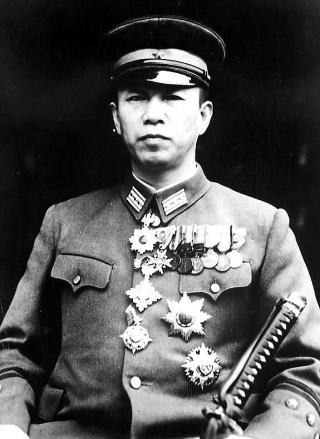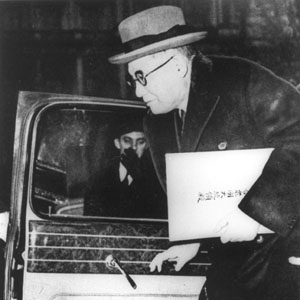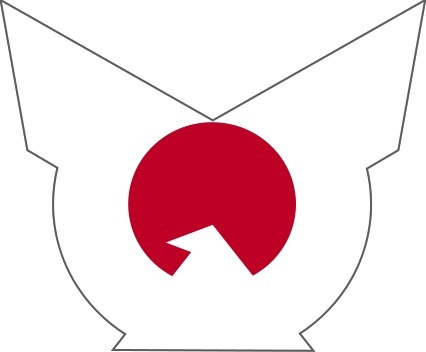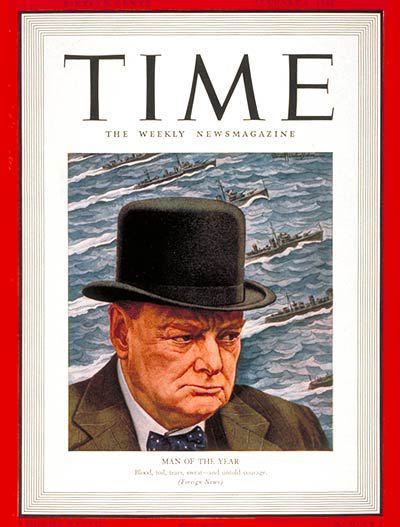Mark Scott Smith's Blog: Enemy in the Mirror, page 132
May 22, 2013
Glenn Miller – Sun Valley Serenade (1941)
Glenn Miller – Chattanooga Choo Choo – Sun Valley Serenade (1941) HQ – YouTube.
Extremely popular from 1939 to his disappearance on an Army transport airplane to Paris in 1944, Glenn Miller‘s hits included: Moonlight Serenade, Chattanooga Choo Choo, Over the Rainbow, Tuxedo Junction, Pennsylvania 6-5000, When You Wish Upon a Star, Fools Rush in, American Patrol, A String of Pearls, Moonlight Cocktail, Don’t Sit Under the Apple Tree, That Old Black Magic.
How many of these tunes do you know?


May 20, 2013
Japanese Field Service Code – January 1941

Colonel Takushiro Hattori, Chief of Operations Planning Staffs, Imperial Japanese Army, July 1941
Japanese field service code adopted by the Imperial War Department January 1941
“The battlefield is where the Imperial Army, acting under the Imperial command, displays its true character, conquering wherever it attacks, winning whenever it engages in combat, in order to spread Kodo (The Imperial Way) whereby the Japanese people, achieving a unity of mind, with Emperor as Master and serving Him with loyalty and devotion, endeavor to establish a highly moral nation through whose moral influence they hope to contribute to the peace and welfare of the world far and wide so that the enemy may look up in awe to the august virtues of His Majesty. Those who march to the battlefield, therefore, should exalt throughout the world the glories of the Empire by fully realizing what the country stands for and firmly upholding the moral tenets of the Imperial Army…”


May 17, 2013
Ambassador Grew Warns of Pearl Harbor Attack – January 1941
Ambassador Joseph Grew; Wikimedia Commons
Posted to Tokyo in 1932, U.S. Ambassador Joseph Grew immersed himself in Japanese culture, and remained well-accepted there even as relations between the two countries deteriorated. In January 1941, Ambassador Grew reported to the State Department that many sources (including a Japanese one) warned of Japanese military plans for a surprise mass attack at Pearl Harbor in case of “trouble” with the United States.


May 15, 2013
Japanese Magazines 1940

image via: tumblr_kxqjyiaO7Y1qaz1ado1_500.jpg 500×697 pixels.
Low-priced monthly magazines were very important in Imperial Japanese culture with over 3,000 periodicals published for all age groups (60 for women). By 1940, leading intellectual publications such as Chuo Koron (中央公論 Central Review) were forced to abandon their former (liberal) stand and align themselves with the current conservative political reform Shintaisei (New National Structure).
http://25.media.tumblr.com/tumblr_kxqjyiaO7Y1qaz1ado1_500.jpg


May 13, 2013
1940s Pin Up Hair Tutorial
May 10, 2013
Ambassador Nomura Arrives in Washington – November 1940

Ambassador Kichisaburō Nomura in Wash.D.C. Feb 1941; Wikimedia Commons
Former Foreign Minister of Imperial Japan from 1939-1940, Admiral Kichisaburō Nomura became Ambassador to the USA in November 1940.
Through much of 1941, Nomura and United States Secretary of State Cordell Hull attempted to resolve issues including the Japanese conflict with China, the Japanese occupation of French Indochina, and the United States oil embargo against Japan.
Nomura’s recommendations for meaningful concessions were repeatedly rejected by his own government and on November 15, 1941, he was joined by a “special envoy” to Washington, Saburō Kurusu.


May 8, 2013
Winston Churchill: Time Magazine Person of the Year 1940
Time Magazine named British Prime Minister Winston Churchill as 1940 Man of the Year for his stirring oration and tough leadership during the Battle of Britain during the summer and autumn of that year.


May 6, 2013
大政翼賛会 – Imperial Rule Assistance Association 1940

Imperial Rule Assistance Organization; Wikimedia Commons
The Imperial Rule Assistance Association, a loose framework of various volunteer organizations, was initiated in October 1940 by Prime Minister Fumimaro Konoe to promote his Shintaisei (New Political Order) movement.
Neighborhood associations (under the ultimate control of centralized bureaucracy) were formed to ration food, collect donations, train civilians in defense, distribute official proclamations, provide send-offs for soldiers heading to the front and look for spies and saboteurs.
Read more: Shillony B-A, Politics and culture in wartime Japan. Clarendon Press, Oxford 1981.


May 3, 2013
FDR Warns Of Danger If Nazis Win the War – December 31, 1940
May 1, 2013
Japanese Government Increasingly Militaristic – 1940

Fumimaro Konoe served as Japan’s 34th, 38th and 39th Prime Minister and was in power during the period leading up to World War II. Against the advice of the Emperor and political allies, Konoe appointed the fiery military advocate Yosuke Matsuoka as his Foreign Minister.
In a 1941 New Year’s message Matsuoka said: ”It may sound unlucky, but in my innermost heart I fear the coming year will prove a most tragic and unfortunate one for all mankind.”


Enemy in the Mirror
I began by posting events around the turn This website www.enemyinmirror.com explores the consciousness, diplomacy, emotion, prejudice and psychology of 20th Century America and her enemies in wartime.
I began by posting events around the turn of the 20th century as I was researching my first novel about the Pacific War. I continued through WWII for my second novel about the Battle of the Atlantic. Now I am beginning to look at the Cold War as I gather information for my next novel about the Korean War. ...more
- Mark Scott Smith's profile
- 7 followers









